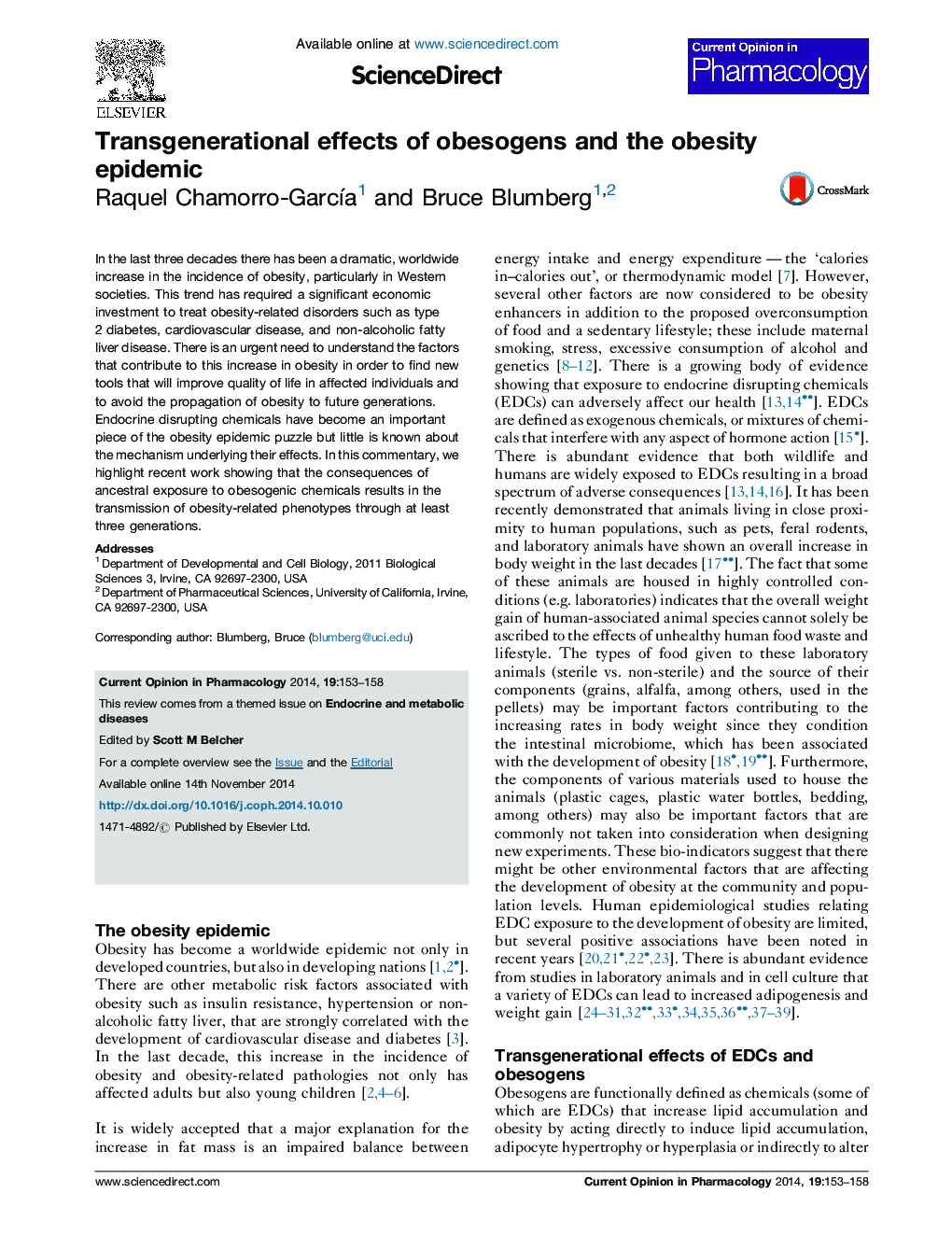| Article ID | Journal | Published Year | Pages | File Type |
|---|---|---|---|---|
| 2529922 | Current Opinion in Pharmacology | 2014 | 6 Pages |
•Endocrine disrupting chemicals (EDCs) may play a role in the obesity epidemic.•Prenatal EDC exposure can elicit transgenerational increases in obesity.•Transgenerational effects of EDCs may have an epigenetic origin.•Epimutations may increase the frequency of genetic changes nearby.•Genetic mutations may increase the frequency of nearby epigenetic changes.
In the last three decades there has been a dramatic, worldwide increase in the incidence of obesity, particularly in Western societies. This trend has required a significant economic investment to treat obesity-related disorders such as type 2 diabetes, cardiovascular disease, and non-alcoholic fatty liver disease. There is an urgent need to understand the factors that contribute to this increase in obesity in order to find new tools that will improve quality of life in affected individuals and to avoid the propagation of obesity to future generations. Endocrine disrupting chemicals have become an important piece of the obesity epidemic puzzle but little is known about the mechanism underlying their effects. In this commentary, we highlight recent work showing that the consequences of ancestral exposure to obesogenic chemicals results in the transmission of obesity-related phenotypes through at least three generations.
